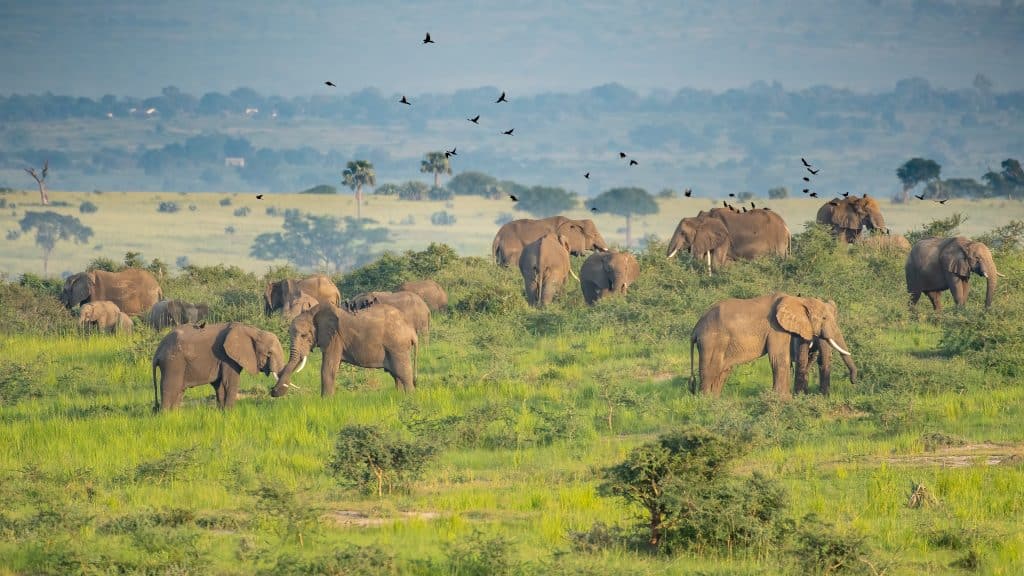The biodiversity of Uganda’s Murchison Falls National Park has been dealt a major blow. The wild animals that graciously roam the park have been hearing unusual noises for several days. This is the start of oil drilling in this biodiversity reserve near the town of Masindi in the northern region.
According to the collective of 260 organisations opposed to the East African Crude Oil Pipeline Project (EACOP), the drilling will have immediate consequences. Highly sensitive to noise, elephants venture beyond the boundaries of the park and into the territory of neighbouring communities. Yet these large herbivores devastate everything in their path, exacerbating the man-wildlife conflict that is partly to blame for the decline in biodiversity in certain parts of Africa.
The long-term impact
In addition to elephants, Murchison Falls is home to 75 other animal species, including the famous lions and giraffes, as well as more than 450 species of birds, “constituting a unique and irreplaceable ecology”, says the collective. The park includes the Murchison Falls and Albert Delta wetland system, a Ramsar site of global importance and an important spawning habitat for Lake Albert fisheries. “TotalEnergies’ oil drilling operations therefore pose a major threat to Uganda’s fisheries sector,” say the non-governmental organisations (NGOs).
Read also- SOUTH AFRICA: controversy surrounding a new TotalEnergies gas project
The Murchison Falls park makes a significant contribution to the Ugandan economy, accounting for 59% of the country’s exports and generating $1.047 billion in revenue in 2022 alone. “By embarking on oil drilling, the essential contributions of the Murchison Falls National Park to the socio-economic fabric of Uganda are now under threat”, the NGO collective lamented in a press release.
For the record, the projects to develop oil resources in the Lake Albert region and the cross-border pipeline are being implemented by the French oil company TotalEnergies and the China National Offshore Oil Corporation (CNOOC). The crude oil produced in the Lake Albert region will be evacuated via a 1,443 km heated pipeline between the town of Kabaale in Uganda and the port of Tanga in Tanzania, as well as a storage terminal and loading jetty in Tanga.
In response to the public outcry over this fossil fuel project, TotalEnergies has had to take a number of measures to reduce the impact on biodiversity, including reducing the number of well sites to 10, evacuating waste for treatment and introducing a traffic management plan to limit the number of vehicles and interference with tourist activities in the park. However, drilling activities are expected to continue, even after sunset. All of which will add to the anxiety of the wild animals.
Jean Marie Takouleu
